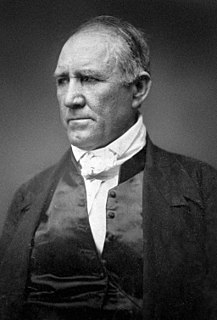A Quote by Blaise Pascal
We must know where to doubt, where to feel certain, where to submit. He who does not do so, understands not the force of reason.
Related Quotes
We cannot begin with complete doubt. We must begin with all the prejudices which we actually have when we enter upon the study ofphilosophy. These prejudices are not to be dispelled by a maxim, for they are things which it does not occur to us can be questioned. A person may, it is true, in the course of his studies, find reason to doubt what he began by believing; but in that case he doubts because he has a positive reason for it, and not on account of the Cartesian maxim. Let us not pretend to doubt in philosophy what we do not doubt in our hearts.
The system of Descartes... seemed to give a plausible reason for all those phenomena; and this reason seemed more just, as it is simple and intelligible to all capacities. But in philosophy, a student ought to doubt of the things he fancies he understands too easily, as much as of those he does not understand.
You must eliminate from your thoughts all doubt and uncertainty that you will get well; that you will succeed; that you will gain your point and get what you want. You may have some uncertainty as to methods, but you must have none as to ultimate results. You may not feel certain that you will succeed today, or next week, but you must feel certain that you will succeed sometime.
He must also know evil, hate and bigotry as real phenomena, but he must see love as the greater force. He must not doubt this even for a moment or he is lost. His only salvation is to dedicate himself to love, in the same fashion as Gandhi did to militant nonviolence, as Socrates to truth, as Jesus did to love and as More did to integrity. Only then will he have the strength to combat the forces of doubt, confusion and contradiction. He can depend upon no on or no thing for reinforcement and assurance but himself.
Because I've got an AFI award, I feel there is a certain expectation when I walk into a room, you know, that 'That Deb Mailman must know something!' But I'm just as nervous with every experience. I still doubt whether or not I can pull something off. I still think, 'When is the review going to come along that says Deb Mailman's not very good?'
The libertarian approach is a very symmetrical one: the non-aggression principle does not rule out force, but only the initiation of force. In other words, you are permitted to use force only in response to some else's use of force. If they do not use force you may not use force yourself. There is a symmetry here: force for force, but no force if no force was used.









































